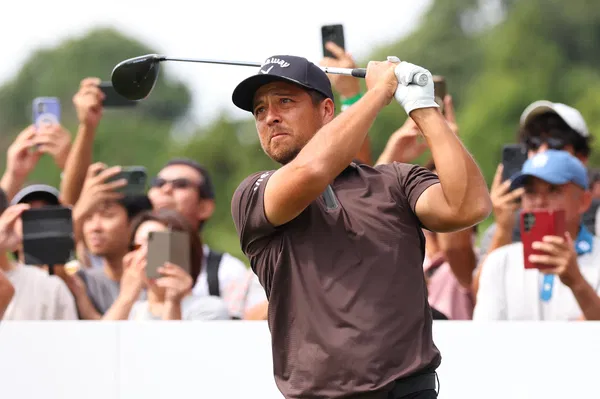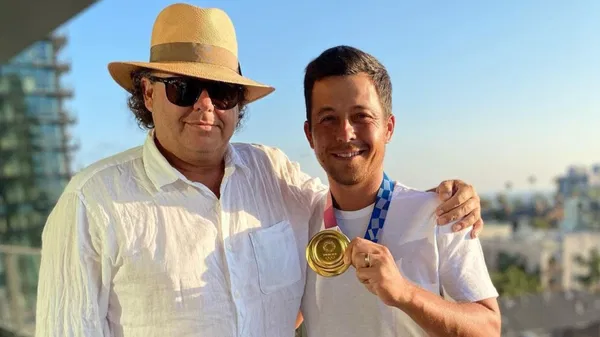
Xander Schauffele
Here’s a deeper look at what Xander Schauffele revealed about the fallout he experienced with his father, Stefan Schauffele, particularly around the father‑son dynamic, feeling like an “outcast”, and how those tensions helped shape his mindset and career.
1. Upbringing & coaching dynamic
Stefan, a former German decathlete whose Olympic dreams were derailed, became Xander’s swing coach from a young age (age 9) in San Diego.
The household was disciplined: “My dad’s [half] German, so discipline, focus and respect are household fundamentals we have,” Xander said.
At the same time, Stefan made clear: “On the golf course you’re the boss; off it, I’m in charge.” That clear division led to both structure and friction.
2. Fights, rebellion and feeling like an outcast
As Xander reached adolescence, the father‑son relationship became “explosive” and “electric” according to Stefan.
Xander admits:
> “I went through this rebel phase where I would argue with him for no reason. … We’d have these huge arguments. We fought all the time.”

One telling anecdote: “We once destroyed a whole bathroom.”
Why did Xander feel like an outcast? A few reasons:
He was coached by his father and heavily managed, which set him apart from many peers.
His father treated him “as an equal” in many ways — but still as the coach and authority figure. Xander said:
> “It’s funny; the way my dad brought us up was to treat me and my older brother Will as equals, so I was fighting with my dad from a very young age and he was OK with it.”
That sense of being “equal” but under heavy scrutiny often left him torn — belonging yet apart.
His father’s coaching style forced him into adult roles early; many of his peers were simply kids playing golf. The difference in experience amplified the sense of being separate.
3. Turning the friction into fuel
Over time, Xander reflected that his father’s patience and methods were better than he realized when younger:
> “Now that I’m older, I realize how patient he was with me. I realised that I was combating him for no reason.”
The tension between them arguably produced resilience and mental strength. The constant clashes forced Xander to figure out how to perform under pressure, manage his emotions, and channel the “outsider” feeling.
Stefan’s coaching went beyond swing mechanics: he instilled mantras like “Commit; Execute; Accept.”
When the relationship matured, Stefan even recognized that Xander might need someone else (Chris Como) to take things further, stepping back.
4. The “outcast” effect – what it looked like & why it matters
Because of his rigorous upbringing and unique father‑son coach dynamic, Xander sometimes felt isolated: not quite like the other kids, not quite in the standard athlete role.
That sense of “outsider” became a hidden advantage: it created a chip on his shoulder, a motivation to prove himself.
It also contributed to mental struggles: early in his career Xander said he’d “cried in dark corners of motel rooms” under the weight of knowing he was “contending but not winning”.
Learning to embrace the feeling of isolation, rather than be hampered by it, allowed him to develop a calm, steady mindset in big moments.
5. Present Reflections & Relationship Today
Today, Xander speaks of his father with respect and affection. He calls him “the ogre” jokingly, but “a big teddy bear” in heart.
They still communicate frequently and share values and lessons, even if the coaching arrangement has changed.
Xander has said one of his biggest hurdles was the patience required — letting the process unfold rather than force outcomes.
6. Key takeaways from the story
Conflict with a parent (especially in performance/coaching settings) can be deeply uncomfortable — yet it can build strength if managed with perspective.
Feeling like an outcast doesn’t have to be purely negative; it can be reframed as “I’m different in a way that supports my own path”.
The transition from teenage friction to adult appreciation in a father‑son athletic/coach relationship is a process.
At the highest level of sport, mental and emotional growth is as critical as physical and technical preparation.